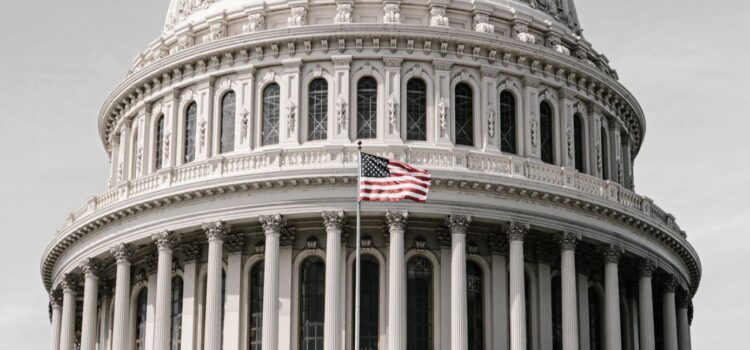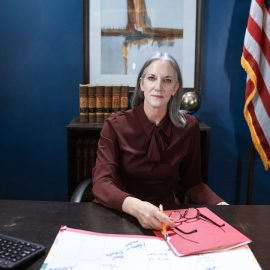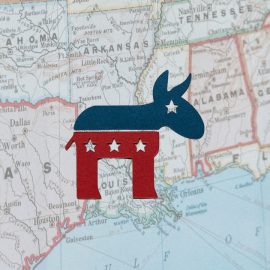

This article is an excerpt from the Shortform book guide to "A Promised Land" by Barack Obama. Shortform has the world's best summaries and analyses of books you should be reading.
Like this article? Sign up for a free trial here .
Was Barack Obama a Senator? How long did he serve in the Senate and what were his contributions?
Barack Obama began his Senate term in 2005. As a senator, Obama became a national celebrity and was known for challenging the GOP on policies.
Read more about Barack Obama and his term as a senator.
Senator Barack Obama
If he was a well-known politician after his victory in the U.S. Senate primary, Senator Obama was a full-fledged celebrity in the wake of his electrifying convention speech. Barack, Michelle, and the girls were no longer able to take family trips to the park or the zoo without being mobbed by media, fans, and onlookers, all eager to catch a glimpse of the man who, overnight, had become one of the nation’s biggest political figures.
Riding the wave of enthusiasm for his candidacy, Obama crushed his Republican opponent, the hapless conservative firebrand Alan Keyes, in a 40-point landslide in the November general election. While he and his team were overjoyed by the victory, Barack’s enthusiasm was tempered by the knowledge that he would be forced to spend even more time away from Michelle and his daughters while he was in Washington three days per week.
It was also a bittersweet night politically. Obama’s victory in the U.S. Senate race had long been a foregone conclusion, but John Kerry’s narrow defeat in the presidential election at the hands of George W. Bush was a crushing blow to Democrats. Even worse, the GOP had retained control of the U.S. Senate and even defeated the Democratic Minority Leader Tom Daschle in his bid for reelection. The party was in its weakest political position in decades.
Barack Obama, Senator
In 2005, with the Republican Party seemingly ascendant, Obama was sworn in as the junior Senator from Illinois. He wanted to make a mark in the Senate, but as a total outsider to Washington, he recognized that he would need the help of experienced hands. He hired longtime Democratic operative Pete Rouse as his chief of staff. Rouse quickly helped Obama staff his core team, hiring several key figures who would later play prominent roles in the Obama presidential campaign and administration.
In the Senate, Obama formed close friendships and strategic partnerships with key figures in the Democratic caucus, including Minority Leader Harry Reid of Nevada and Minority Whip Dick Durbin of Illinois. Although they came from different personal and political backgrounds, Obama admired Reid’s tenacity, mastery of Senate rules and procedure, and hard-nosed and unemotional nature. Indeed, Reid was famous for his bluntness during phone calls, often ending conversations by simply hanging up without a “goodbye.”
A Renewed Intimacy
To his great happiness, Barack found that he was easily able to fly back to Chicago to be with Michelle and the girls. During this period, he and Michelle enjoyed a new connection and rediscovered a closeness and intimacy that had been strained by the chaos and upheaval of the previous few years.
Ironically, despite being a national media sensation, he and Michelle were able to enjoy a level of domestic tranquility with family and friends back home in Hyde Park that they hadn’t experienced in years. Eschewing the career-climbing Washington cocktail party circuit, Barack and Michelle enjoyed being with one another more than anything else.
Of course, the intensifying media scrutiny meant that their family life would never be quite the same again. On one occasion when he was taking the girls to the zoo, he was mobbed by fans and media (Malia suggested that Barack use “Johnny McJohn John” as an alias on future family excursions).
Of course, Barack knew that this was what he’d signed up for when he made the decision to run for office. But it was hard to not feel some pain to see the girls no longer having a father who belonged exclusively to them.
Hurricane Katrina: A Failure of Governance
Less than a year after Obama took office in the Senate, Hurricane Katrina made landfall in New Orleans as a Category 3 storm in September 2005. The devastation it wrought on the city was immense—80% of the city inundated with water, tens of thousands of people made homeless, nearly 1,500 deaths, and over $160 billion in damage.
The inadequate federal response to the hurricane was widely seen as a national disgrace and a stunning indictment of the Bush administration’s laissez-faire approach to running the government. For his part, Obama was appalled by the incompetence and indifference of the Bush administration, which had allowed a once-great American city to drown on its watch.
The way Obama and many others saw it, people in the poor, majority-Black city had been abandoned and left to drown and starve by the Republicans. Their callous indifference to the fate of New Orleans was a stark reminder of the GOP’s cavalier attitude toward intergenerational poverty and the broader political, social and economic forces that made it possible.
Unable to stay silent, Senator Barack Obama began making the rounds on national television to decry the gross failures of the Department of Homeland Security and Federal Emergency Management Administration under Bush.

———End of Preview———
Like what you just read? Read the rest of the world's best book summary and analysis of Barack Obama's "A Promised Land" at Shortform .
Here's what you'll find in our full A Promised Land summary :
- How Barack Obama went from relative obscurity to the first Black president
- What principles guided his political leadership style
- Why Obama retained an unshakable faith in the potential and promise of America






